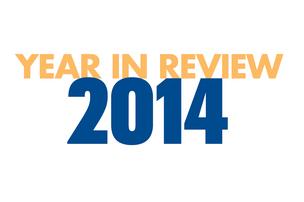It’s a fairly familiar trope. How many American Jews know the name of Jesus’ mother and how many know Moshe’s mother's name? Of course, to be fair, the two women do not have equally significant roles in the respective religions, but there is still an important point being made here. Far too many American Jews are ignorant of Tanach, and this includes the Orthodox community. How many American Jews know the names of the books of Trei Asar, let alone have studied any of them? How many people in our communities are familiar with the book of Melachim? It is for that reason that I would like to make an immodest proposal.
Project 929 was recently started in Israel. The project, which began at the home of Israel’s president, is based on the idea that all Israeli Jews should study the 929 chapters of Tanach, by studying one chapter each day. With an attractive website, and articles from all segments of the Jewish-Israeli population, it is off to a very promising start. Even as some features of the program have attracted some controversy (click here if you can read modern Hebrew), there is still a lot of excitement about the project.
It is time for a similar program to be started in America. It is past the time for "The people of the book" to study the book. While most American Jews are not fluent enough in Hebrew to read Tanach in its original language, there are a number of excellent translations available (of course, I can not avoid noting the irony of making this suggestion one day after the date that the rabbis say the Torah was translated into Greek). As with the Israeli edition, there could be articles contributed by scholars and laymen on the various chapters. Imagine an article by Leon Wieseltier about the sale of Joseph by the brothers, or the chance for the average American Jew to be exposed to Rav Soloveitchik’s Adam I and II. Also similar to the Israeli program, there would be articles shared from across the Jewish spectrum of all the denominations, as well as secular Jews. Not only would such a program help generate American Jews who are more Jewishly literate, but it would also be a project which could lead to much unity, as Jews from all walks of life would be studying the same chapter together. Imagine the discussion groups that could be started that could be open to all Jews regardless of affiliation. Consider the thoughtful discussions and debates that might occur between Jews who until now lacked a common religious language.
I don’t know the cost of the Israeli program, or how much it would cost to start Project 929 America, but whatever the cost, there are things that are important enough that money should not be an obstacle. Truly, this project would be priceless.









